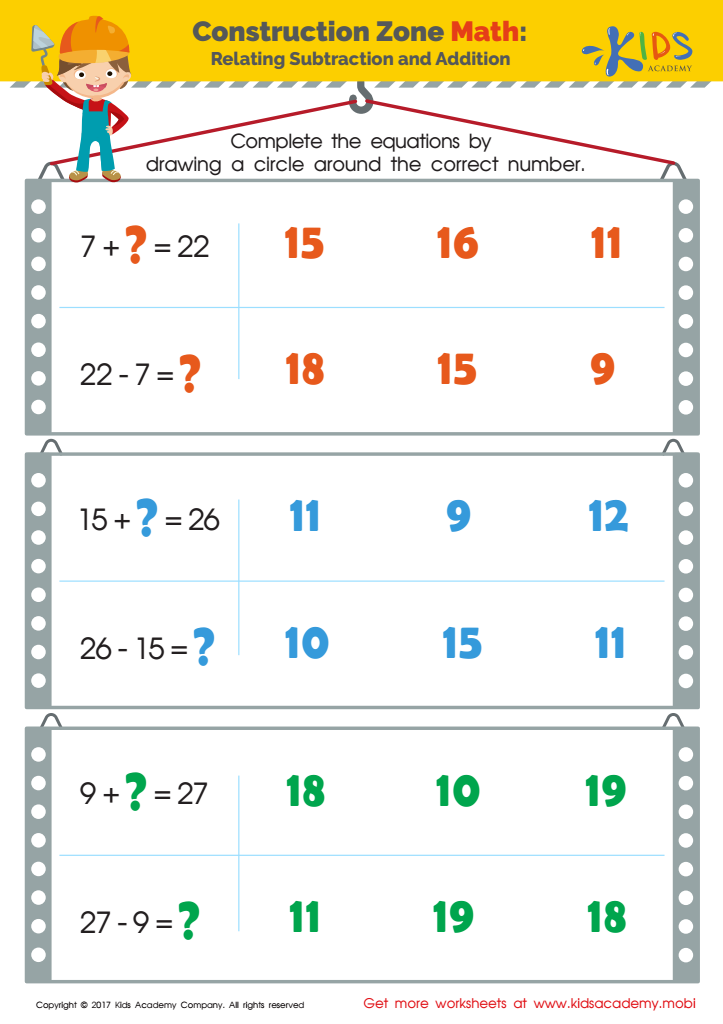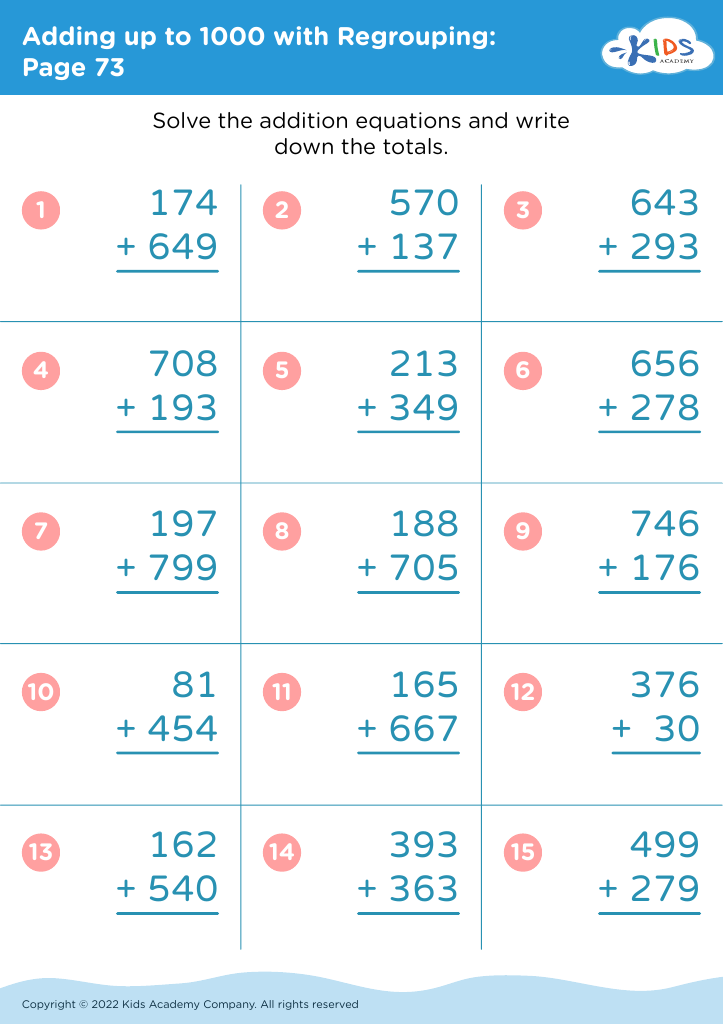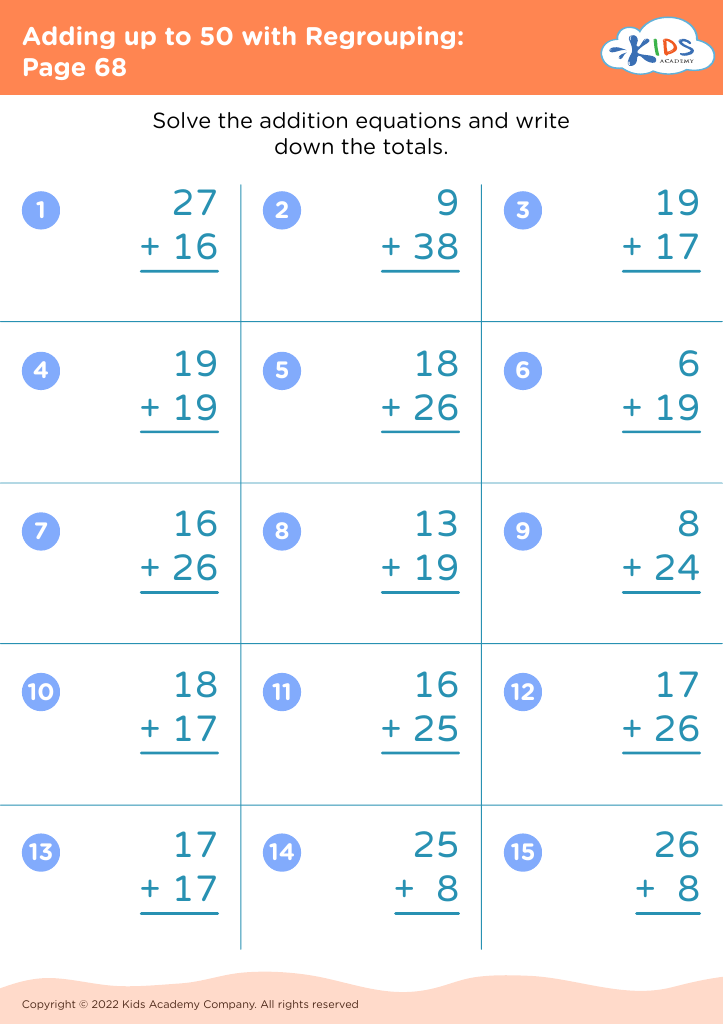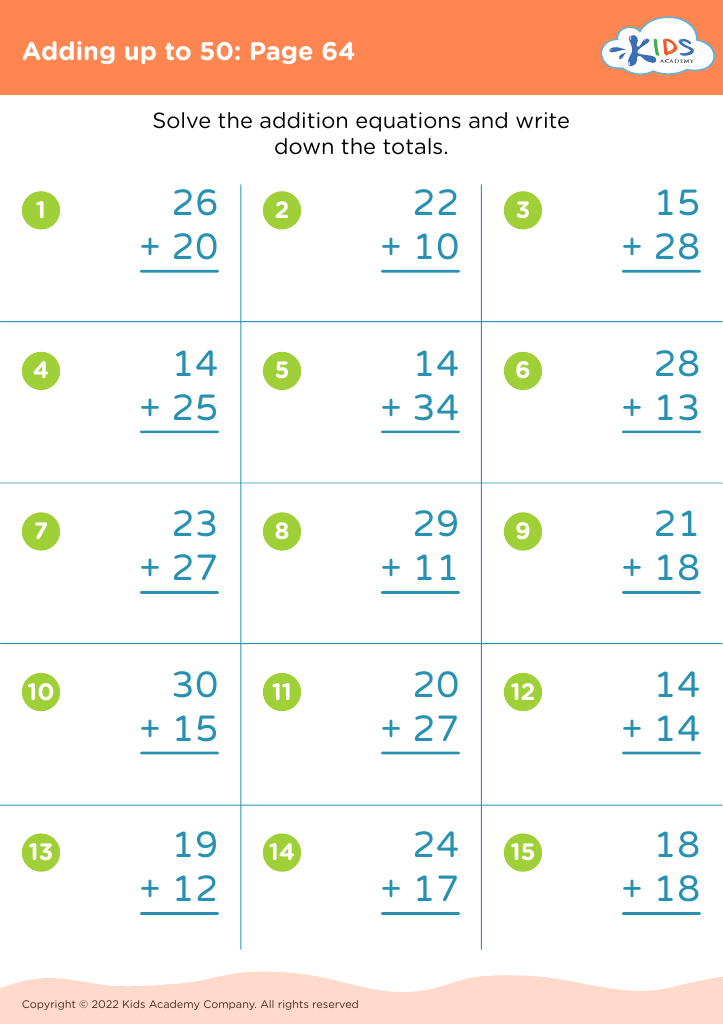Developing logical thinking Addition & Subtraction Worksheets for Ages 6-9
4 filtered results
-
From - To
Unleash your child's inner mathematician with our "Developing Logical Thinking Addition & Subtraction Worksheets for Ages 6-9." These expertly crafted worksheets from Kids Academy foster critical logical thinking skills through engaging and fun math exercises. Designed especially for young learners, ages 6 to 9, each worksheet provides a delightful mix of addition and subtraction problems. By solving them, kids enhance their analytical skills and gain confidence in math. Practical real-life problems make learning meaningful, aiming to nurture a lifelong love for math. Perfect for parents and educators seeking to support children’s educational journeys logically and thoughtfully.


Related Addition and Subtraction Facts Worksheet
Developing logical thinking in addition and subtraction for children aged 6-9 is crucial because these fundamental math skills are the building blocks for more complex mathematical concepts and critical thinking abilities in later years. At this developmental stage, children's brains are exceptionally receptive to learning new concepts and problem-solving techniques. Mastery of basic arithmetic not only boosts their confidence but also lays a strong foundation for academic success.
First and foremost, understanding addition and subtraction helps children in everyday life situations, such as calculating money, measuring ingredients in recipes, or determining time intervals. It fosters a practical understanding of how numbers interact, which is essential for future studies in science, technology, engineering, and mathematics (STEM).
Moreover, engaged logical thinking enhances cognitive development. When children solve mathematical problems, they learn to analyze situations, recognize patterns, and make informed decisions. This critical thinking transpires beyond math, benefiting reading comprehension and logical reasoning in various other subjects and real-life situations.
Finally, fostering these skills during early education instills lifelong learning habits and intellectual curiosity. It prepares them for a progressively more digital and information-rich society, where problem-solving and analytical skills are in high demand. Therefore, parents and teachers should prioritize developing logical thinking in addition and subtraction to equip children with the tools necessary for academic and personal success.




 Assign to My Students
Assign to My Students



















